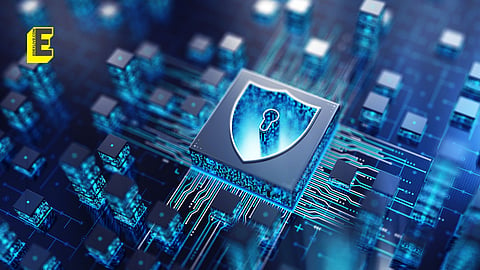Students, are you interested in Cybersecurity? Details on courses, skills, job opportunities and more
In rapidly evolving fields like cybersecurity, where the landscape changes daily, what should students consider when choosing a course and college?
When students are selecting a rapidly evolving course like cybersecurity, they should consider several key factors such as curriculum relevance that includes comprehensive coverage of topics in the course, regular updation of curriculum, research output from faculty, industry connectivity for internships, projects and campus recruitments, and assured of the place where they receive a comprehensive, and high-quality education.
It is very crucial to select institutions that offer substantial hands-on experience through well-established laboratories to build practical skills.
Faculty expertise with industrial certifications and industrial collaborations to give real-time exposure to the students are also important for better education. Identification of accreditation and recognition by higher education regulatory bodies shall ensure quality education.
The government supports recognised institutions with funds towards the lab setups and, for instance, Vellore Institute of Technology (VIT) has established a cyber threat intelligence research centre through DST-FIST (Department of Science and Technology - Fund for Improvement of S&T Infrastructure) funding.
Students can ensure that the college encourages continuous learning and offers resources for ongoing professional development with access to a good library and online resources, and opportunities for industry-recognised certifications which are crucial for staying updated with the latest developments in the field.
What qualities and skills are the industry seeking in a student with a cybersecurity background who is looking for job opportunities?
When the industry evaluates a student, there are several key attributes and skills that employers naturally look for, such as technical skills, practical experience, certifications, soft skills, and an understanding of current trends and best practices.
Employers value the practical experience gained through internships, lab work, or relevant projects, as it demonstrates the ability to apply theoretical knowledge to real-world scenarios.
An up-to-date understanding of current cyber threats, vulnerabilities, and security technologies is important for staying ahead of emerging risks.
Relevant industry certifications, such as CompTIA Security+, Certified Ethical Hacker (CEH), or Certified Information Systems Security Professional (CISSP), can significantly enhance a candidate’s credentials.
While deep expertise in cybersecurity can lead to a successful career, the knowledge of AI, ML, and Data Science can significantly enhance the student’s career prospects. The integration of these fields allows for the development of more sophisticated and proactive security measures, making a professional more valuable in the ever-evolving landscape of cybersecurity.
Students who demonstrate a blend of these attributes are more likely to succeed in securing job opportunities in the cybersecurity industry.
When we think of cybersecurity or cyberspace, cybercrime often comes to mind first. However, what other opportunities does the field offer that students should be aware of?
While cybersecurity is often associated with combating cybercrime, the field offers a broad range of opportunities and specialisations beyond this aspect, such as diverse roles that involve protecting networks, data, applications, and infrastructure, as well as ensuring compliance and managing risks.
Students can explore various specialisations that align with their interests and skills, including network security, application security, cloud security, incident response, cybersecurity research, IAM (Identity and Access Management), GRC (Governance, Risk, and Compliance), internet of things security, and the integration of AI (Artificial Intelligence) and ML (Machine Learning) in security.
Understanding these diverse roles can help students make informed decisions about their career paths and contribute to the broader mission of securing cyberspace. The field offers ample opportunities for those interested in technology, problem-solving, and safeguarding digital environments by developing AI-driven security tools, automating threat detection and response, and using ML to predict and prevent cyber threats.


